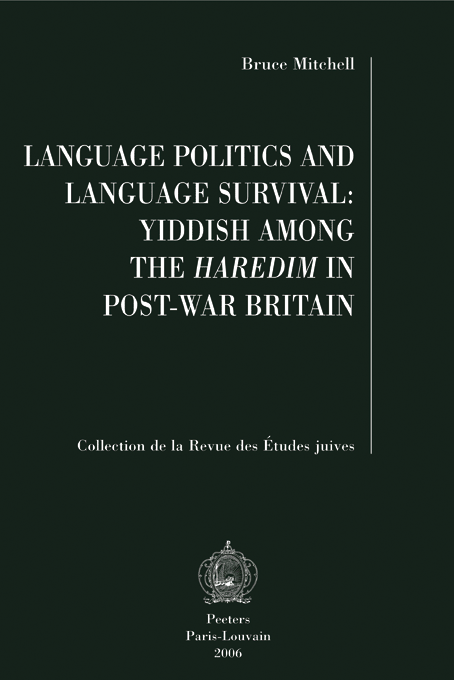« Language Politics and Language Survival: Yiddish among the haredim in post-war Britain » outlines the history and development of the Yiddish language as it is used among Ultra-Orthodox Jews in contemporary Britain. The language policies of these communities are analysed and placed within the greater socio-historical and religious context of rabbinic justifications for the use of Jewish languages, and of Yiddish in particular. Reasons for the general abandonment of Yiddish outside of the « haredi » world are also summarized and placed in juxtaposition with the Yiddish language of loyalty of the « haredim ». Yiddish language and corpus planning in «haredi» schools is analysed using communal documents and newspaper articles, educational assessments of Jewish schools compiled by « Her Majesty’s Inspectors », a number of interviews with communal educators, tape recordings of lessons given in Yiddish, and observations made during my own visits to «haredi» educational institutions. A significant part of this book is dedicated to the analysis of the Yiddish language itself as it is currently used in Britain. The analysis of spoken Yiddish is based on recordings of speech patterns collected in the course of field work in « haredi » schools in London and Manchester and focuses primarily on dialectal usage based on religious sect and the geographic region within Britain. A brief sociological analysis of « haredi » literature in Yiddish is provided in order to demonstrate the ideological function of Yiddish language texts in contemporary Britain, and in the « haredi » world in general. The primary materials used for this are texts produced by, and published within, the « haredi » communities of Britain.
Collection de la Revue des Études Juives, 39
